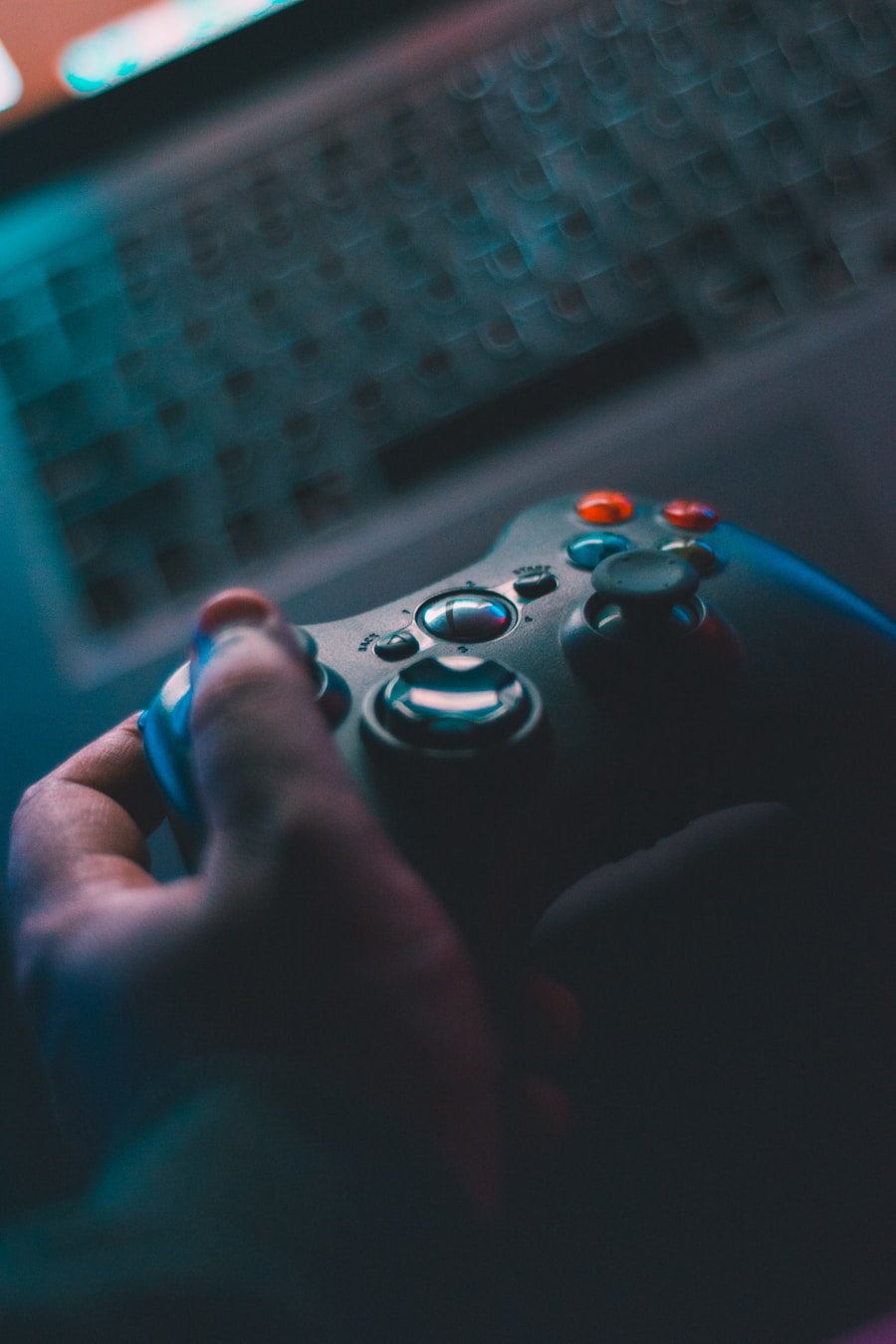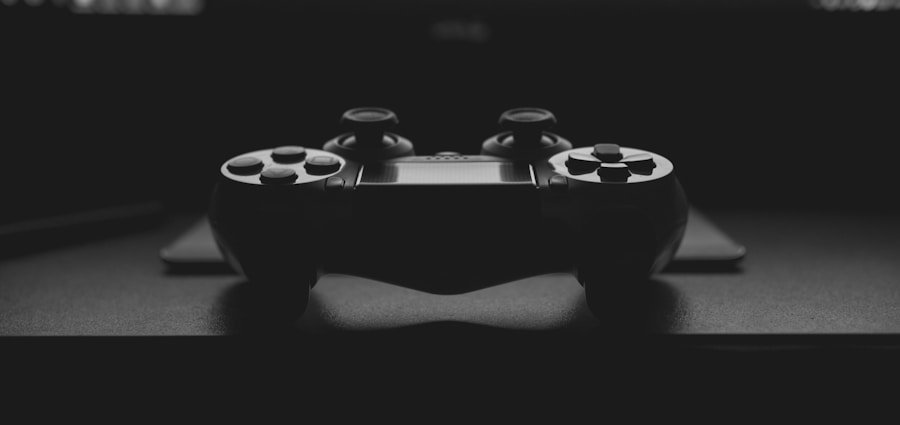Now Reading: The Impact of Gaming on Mental Health
-
01
The Impact of Gaming on Mental Health
The Impact of Gaming on Mental Health

As I delve into the world of gaming, I find myself captivated not only by the immersive experiences and intricate narratives but also by the profound impact it has on mental health. The relationship between gaming and mental well-being is a complex tapestry woven with both positive and negative threads. In recent years, the conversation surrounding gaming has evolved significantly, shifting from a mere pastime to a subject of serious psychological inquiry.
I have come to realize that gaming can serve as both a refuge and a source of distress, depending on how it is approached and integrated into one’s life. In my exploration of this topic, I have encountered a myriad of studies and personal anecdotes that highlight the dual nature of gaming. On one hand, it can foster social connections, enhance cognitive skills, and provide an escape from reality.
On the other hand, it can lead to addiction, exacerbate anxiety, and contribute to feelings of isolation. As I navigate through this intricate landscape, I aim to shed light on the multifaceted relationship between gaming and mental health, offering insights that may resonate with fellow gamers and mental health advocates alike.
Key Takeaways
- Gaming can have both positive and negative effects on mental health
- Positive effects of gaming include stress relief, improved cognitive skills, and social connection
- Negative effects of gaming can include addiction, increased anxiety, and depression
- There is a complex relationship between gaming and anxiety, with both positive and negative impacts
- Gaming addiction can have a significant impact on mental health, leading to isolation and other negative consequences
The Positive Effects of Gaming on Mental Health
One of the most striking aspects of gaming is its potential to positively influence mental health. I have often found solace in the virtual worlds created by game developers, where I can immerse myself in rich narratives and vibrant environments. Research supports this notion, indicating that gaming can serve as a powerful tool for stress relief.
Engaging in gameplay allows me to temporarily escape from the pressures of daily life, providing a much-needed respite that can rejuvenate my mind. Moreover, gaming has been shown to enhance cognitive functions such as problem-solving skills, memory retention, and strategic thinking. I have experienced firsthand how certain games challenge my intellect and require me to think critically under pressure.
This cognitive engagement not only sharpens my mental acuity but also instills a sense of accomplishment when I overcome challenges within the game. Additionally, many games encourage teamwork and collaboration, fostering social connections that can combat feelings of loneliness and isolation.
The Negative Effects of Gaming on Mental Health

Despite the numerous benefits that gaming can offer, I cannot ignore the darker side of this digital pastime. One of the most concerning issues is the potential for excessive gaming to lead to negative mental health outcomes. I have observed how some individuals become so engrossed in their virtual worlds that they neglect their responsibilities and relationships in the real world.
This disconnection can result in feelings of guilt, anxiety, and even depression as they grapple with the consequences of their choices. Furthermore, the competitive nature of many games can exacerbate feelings of inadequacy and low self-esteem. I have experienced moments where my performance in a game directly impacted my mood, leading to frustration and self-doubt.
The constant comparison to others, especially in online multiplayer environments, can create an unhealthy mindset that undermines one’s self-worth. It is crucial to recognize these potential pitfalls and approach gaming with a balanced perspective to mitigate its adverse effects. (Source: American Psychological Association)
The Relationship Between Gaming and Anxiety
As I reflect on my own experiences with gaming, I cannot help but acknowledge its intricate relationship with anxiety. For some, gaming serves as a coping mechanism, providing an outlet for stress relief during challenging times. I have often turned to my favorite games when feeling overwhelmed, finding comfort in the familiar mechanics and engaging storylines.
However, this reliance on gaming can sometimes lead to a cycle where anxiety is both alleviated and exacerbated. On one hand, gaming can distract me from anxious thoughts and provide a sense of control in an otherwise chaotic world. On the other hand, I have noticed that certain games can heighten my anxiety levels, particularly those that involve high-stakes competition or time-sensitive challenges.
The pressure to perform well can create a sense of urgency that triggers my anxiety rather than alleviating it. Understanding this duality has been essential for me in navigating my own mental health journey while engaging with video games.
Gaming Addiction and its Impact on Mental Health
The phenomenon of gaming addiction is a pressing concern that has garnered significant attention in recent years.
I have seen individuals become so consumed by their gaming habits that they neglect essential aspects of their lives, such as work, relationships, and self-care.
This compulsive behavior can lead to feelings of isolation and despair as they grapple with the consequences of their addiction. In my observations, gaming addiction often coexists with other mental health issues, creating a complex interplay that can be challenging to navigate. For instance, individuals struggling with anxiety or depression may turn to gaming as a means of escape but ultimately find themselves trapped in a cycle of avoidance.
This realization has prompted me to consider the importance of moderation and self-awareness when engaging with video games. Recognizing the signs of addiction is crucial for maintaining a healthy relationship with gaming and ensuring that it remains a source of enjoyment rather than distress.
The Role of Gaming in Depression and Isolation

As I reflect on the role of gaming in relation to depression and isolation, I find myself grappling with both sides of the coin. On one hand, gaming can provide a sense of community and belonging for those who may feel isolated in their everyday lives. I have experienced moments where online multiplayer games allowed me to connect with others who share similar interests, fostering friendships that transcend geographical boundaries.
These connections can be particularly valuable for individuals struggling with depression, as they offer a sense of support and understanding. Conversely, I have also witnessed how excessive gaming can contribute to feelings of isolation and exacerbate depressive symptoms. When individuals retreat into their virtual worlds at the expense of real-life interactions, they may inadvertently deepen their sense of loneliness.
I have found that striking a balance between online engagement and face-to-face connections is essential for maintaining mental well-being. It is crucial to recognize when gaming becomes a barrier to meaningful relationships and take proactive steps to foster connections outside of the digital realm.
Strategies for Maintaining a Healthy Gaming-Mental Health Balance
In my quest for a healthy balance between gaming and mental health, I have discovered several strategies that have proven effective. First and foremost, setting boundaries around gaming time has been instrumental in preventing excessive play. By establishing specific hours dedicated to gaming, I am able to enjoy my favorite pastime without allowing it to encroach upon other important aspects of my life.
This intentional approach helps me maintain a sense of control over my gaming habits. Additionally, I have found it beneficial to diversify my leisure activities beyond gaming. Engaging in physical exercise, pursuing creative hobbies, or spending time with friends and family allows me to cultivate a well-rounded lifestyle that supports my mental health.
By incorporating various activities into my routine, I am less likely to rely solely on gaming as a source of fulfillment or escape.
Seeking Help for Gaming-Related Mental Health Issues
As I navigate the complexities of gaming and mental health, I recognize the importance of seeking help when needed. It is essential to acknowledge that struggling with gaming-related mental health issues is not a sign of weakness but rather an opportunity for growth and healing. If I find myself feeling overwhelmed by my gaming habits or experiencing negative mental health outcomes as a result, reaching out for support is crucial.
There are numerous resources available for individuals grappling with gaming addiction or related mental health concerns. Whether it be through therapy, support groups, or online communities dedicated to mental health awareness, seeking help can provide valuable insights and coping strategies. I have learned that opening up about my experiences not only alleviates feelings of shame but also fosters connections with others who may be facing similar challenges.
In conclusion, the relationship between gaming and mental health is multifaceted and deeply personal. As I continue to explore this dynamic landscape, I remain committed to fostering a healthy balance that allows me to enjoy the benefits of gaming while prioritizing my mental well-being. By recognizing both the positive and negative aspects of gaming, I can navigate this journey with greater awareness and intention.
Gaming has been a popular form of entertainment for many individuals, but it also has the potential to impact mental health.















